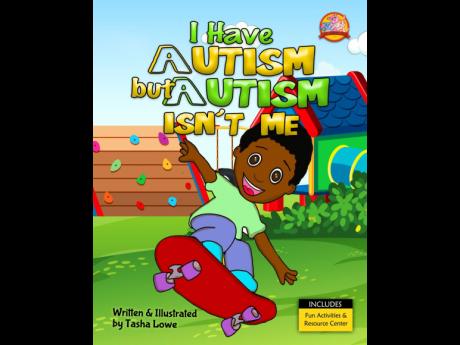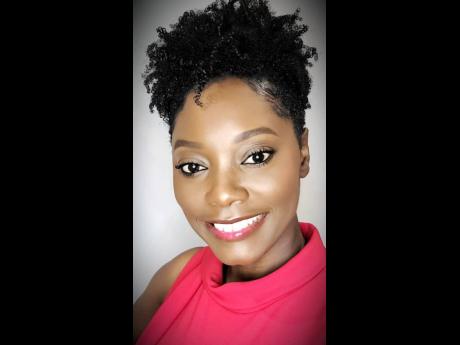J’can author pens children’s book to boost autism awareness
A Jamaica-born author and illustrator of children’s books wants more to be done to raise awareness about people living with autism spectrum disorder (ASD), a developmental disability caused by differences in the brain that impacts social communication and interactive skills.
As April 1 marked the start of Autism Awareness Month, Tasha Lowe, a social worker with more than 14 years of experience who lives in British Columbia, Canada, wants the society to be more inclusive and sensitive to the needs of those who are on the autism spectrum.
According to Lowe, it can be very challenging for children who are born on the spectrum to navigate life because they are more likely to be bullied, and people may act harshly towards them. Some individuals may also overlook or disregard their disorder.
“It can be very difficult, especially in our Jamaican culture. You know, growing up, a lot of times you would hear parents or even teachers saying to kids, ‘You dunce’ or ‘You slow’, just all these labels – ‘You no have no sense’, You fool-fool’ and stuff like that – without understanding that it is possible that that child could be on the spectrum and so [they don’t have] the understanding. There isn’t a nurturing environment that would allow them to understand [their disorder],” she said.
Lowe said that parents can become very hostile and frustrated when their child displays behaviours that are different from those of other children as a result of the absence of awareness and public education surrounding ASD.
This, she said, makes it even more difficult for the affected child as “their ability to capitalise on their fullest potential is removed”.
“I feel like teacher training should have a disability component to it - how to prepare their classrooms for someone who is on the spectrum, how to partner with their community - and ... I think by doing that and making those links and connections, then I think we can spread far and wide autism awareness and thus build an environment and community of inclusivity,” she told The Gleaner.
Lowe was inspired to write the book I Have Autism But Autism Isn’t Me through her job as a social worker as her first introduction to the profession was to serve autistic individuals.
“My first job was in Massachusetts, where I worked with teenage boys that were autistic ... . I got into the space, and I fell in love with them to the point where I was like a momma bear when I had to take them in public, [but] people did not understand their social norms, and as a result, some persons would be rude,” she said.
Lowe recalled that earlier in her career, at the age of 23, she encountered an individual who was rude to one of the boys while in a shopping mall.
“I felt like, at the time, I was young, I was immature, and so I reacted in defence of my client, and so that reaction, looking back, [I] could have had a better response because it was an opportunity for me to teach her, in particular, [as she] clearly did not understand what autism was,” she said.
The year 2020 saw Lowe’s return to working with individuals living with ASD, which reignited her passion and gave her the inspiration to write the educational book that targets children between the ages of four and 12 years.
With its vibrant colours, meaningful illustrations and relatable characters, the book teaches children in a fun and simple way how to treat people with autism.
“The book was written in a way where I highlight things that you may see or may not see in a person on the spectrum, and with each highlight, I would give an explanation or make room for understanding why a child may behave that way and when you see this, this is what it may mean,” she explained.
It also contains teaching resources that parents and teachers can use at home and in the classroom.
Debunking common misconceptions about autism, highlighting self-regulation techniques for people with autism, outlining triggers for those who live with autism, and pointing out specific symptoms of people with autism are some of the topics covered in the information provided.
Lowe said that one of her main goals is getting the book into the classrooms of her native country to help with teaching children about ASD.
“A couple months ago, I did a book signing ... and while I was there, a parent came to me, she and her son, and she said to me, ‘You know, I’m so happy you decided to write this book’ ... as her son was on the spectrum. But she said, ‘I’m more excited about you writing the book because my son has only gone to school six times this year’. Now I saw this lady in November of last year,” Lowe said.
She added that when she enquired why the boy had only gone to school six times, the mother stated that there was no space for him there as the teachers did not understand how to cater to him and would become frustrated and that the child felt unsafe.
“There was so much burden, you know. It felt so good that I could have provided a space for her to unload because she [turned] to her son and said, ‘This [book] will help your dad and your grandmother to understand you more’,” Lowe said, noting that the challenges also exist at home with family members being out of touch with how to parent and manage children with ASD.
Lowe has written eight children’s books, including Rex Gawn Ah Canada, which is based on a true story of Jamaican dogs migrating; Chloe Goes to the Zoo, which details a young girl’s love for animals; and Kids and Emotions with Aiden and Bobbo, which explores emotional intelligence in children.
Her ninth book, which speaks to body safety issues in children, is set to be released in the latter part of 2023.
“Each one can reach one. You’re not being asked to get formal education in ASD. You are just being asked to show up as a human being and think about if you were on the spectrum or if your child was on the spectrum, what would you want to receive, and I think a lot of the times if we pause to put ourselves in those positions, then we’re better able to do our little bit in our corner, [which] triggers a chain reaction,” she said, adding that the awareness needed to be spread right throughout the year and not only in April.
“But as April is recognised as Autism Awareness Month, start there. Become curious [as] you don’t have to know all the answers,” she said.
How to access books
Tasha Lowe’s children’s books can be purchased on Amazon at https://www.amazon.com/s?k=Tasha+lowe
She can also be reached through email at sutherland.tasha@gmail.com and via Instagram @just.genios.


